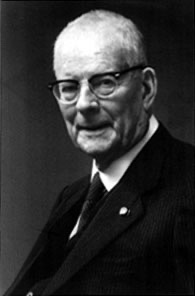
 Over three decades ago, Ford Motor Company and the rest of the American automakers awoke to the threat of Japanese automakers. The competition was real and the future of the big three automakers, General Motors, Ford and Chryler was not certain.
Over three decades ago, Ford Motor Company and the rest of the American automakers awoke to the threat of Japanese automakers. The competition was real and the future of the big three automakers, General Motors, Ford and Chryler was not certain.
It was in that context that I was first introduced to Dr. W. Edwards Deming. Of course, we did not meet personally. His philosophies and principles have had a profound influence on Ford Motor Company and for me, as well as american industry in general. The following Wikipedia excerpt Provides some insight into the depth of his influence on Ford.
Ford Motor Company was one of the first American corporations to seek help from Deming. In 1981, Ford’s sales were falling. Between 1979 and 1982, Ford had incurred $3 billion in losses. Ford’s newly appointed Corporate Quality Director, Larry Moore, was charged with recruiting Deming to help jump-start a quality movement at Ford. Deming questioned the company’s culture and the way its managers operated. To Ford’s surprise, Deming talked not about quality, but about management. He told Ford that management actions were responsible for 85% of all problems in developing better cars. In 1986, Ford came out with a profitable line of cars, the Taurus-Sable line. In a letter to Autoweek, Donald Petersen, then Ford chairman, said, “We are moving toward building a quality culture at Ford and the many changes that have been taking place here have their roots directly in Deming’s teachings.” By 1986, Ford had become the most profitable American auto company. For the first time since the 1920s, its earnings had exceeded those of archrival General Motors (GM). Ford had come to lead the American automobile industry in improvements. Ford’s following years’ earnings confirmed that its success was not a fluke, for its earnings continued to exceed GM and Chrysler’s.
Although the impact of Deming on Ford was dramatic, based on his accomplishments In his career prior to Ford, they should not have come as a surprise. Wikipedia provides a helpful summary of his career. https://en.wikipedia.org/wiki/W._Edwards_Deming
My experience with Dr. Deming , came via statistical process control and his management philosophies. In the midst of the above mentioned crisis of Ford Motor Company, my job responsibilities shifted to initiatives that were derived from Deming’s consultation with Ford executive management.
One of the first impacts of Deming on our assembly plant was the hiring of a cadre of young and mostly female statiticians and the formation of a Statistical Process Control (SPC) group. They were commissioned with the task of implementing SPC throughout our plant, which proved to be a daunting assignment.
Concurrent with SPC came Employee Involvement (EI), a joint initiative between the United Autoworkers Union (UAW) and Ford Motor Company. Also a derivitive of Deming’s influence and the Japanese competition crisis, longstanding UAW/Ford anomosities were transcended as they joined forces against a common foe.
My responsibilty in EI was introducing and orientating every hourly employee, 40-50 at a time in an eight hour class. The plant popoulation was around 1500-2000 hourly employees at that time. As SPC was met with much skeptism by salaried employees, EI was met with equal, if not more, suspicion by hourly employees. That experience is worthy of its own post.
The radical nature of Deming’s methodologies and philosophies became most apparent when introduced to management and salaried employees. If the hourly ranks were fearful, management was terrified. The implications of adopting Deming’s management philosophies were a clear threat to the prevailing culture of Ford Motor Company. Change is hard enough, but when your career depends on making changes which are completely contary to all you have been taught; and makes skills that got you whatever measure of success you have achieved obsolete, it is terrifying. For management, the change required was not optional, get on board or get off.
The following are a few quotes from Deming related to his mangement philosophy. I believe they will help in understanding its radical nature.
“It is not necessary to change. Survival is not mandatory.”
“Learning is not compulsory… neither is survival.”
We are being ruined by the best efforts of people who are doing the wrong thing.
In God we trust, all others bring data.
We know what we told him, but we don’t know what he heard.
……the aim of leadership is not merely to find and record failures of men, but to remove the causes of failure: to help people to do a better job with less effort.
Best efforts are essential. Unfortunately, best efforts, people charging this way and that way without guidance of principles, can do a lot of damage.
Management is responsible for 94% of the problems”
“Inspection does not improve the quality, nor guarantee quality. Inspection is too late. The quality, good or bad, is already in the product.
Put a good person in a bad system and the bad system wins, no contest.
Two basic rules of life are: 1) Change is inevitable. 2) Everybody resists change.
The greatest waste … is failure to use the abilities of people…to learn about their frustrations and about the contributions that they are eager to make.
If you wait for people to come to you, you’ll only get small problems. You must go and find them. The big problems are where people don’t realize they have one in the first place.
During the meeting, our division president asked Dr. Deming, “Is there hope for GM?” Dr. Deming’s reply: “Sometimes you have to wait for people to die.”
Via Eric Budd – “In attempting to understand why he might say something like this, I ran across this quote, ‘A new scientific truth does not triumph by convincing its opponents and making them see the light, but rather its opponents eventually die, and a new generation grows up that is familiar with it.’
A leader is a coach, not a judge.
He that would run his company on visible figures alone will in time have neither company nor figures
Long-term commitment to new learning and new philosophy is required of any management that seeks transformation. The timid and the fainthearted, and people that expect quick results, are doomed to disappointment.
My job respnsibilty after EI was as an internal consultant to management, working with an external consulting firm hired by Ford. Our assignment was to facilitate senior management’s transition from traditional mangement philosophies to a participative management phililoshophy. That, too, is worthy of another of another post.
This excerpt from Deming’s writings may be helpful in providing understanding why I would write about my encounter.
The first step is transformation of the individual. This transformation is discontinuous. It comes from understanding of the system of profound knowledge.The individual, transformed, will perceive new meaning to his life, to events, to numbers, to interactions between people. Once the individual understands the system of profound knowledge, he will apply its principles in every kind of relationship with other people. He will have a basis for judgment of his own decisions and for transformation of the organizations that he belongs to.
My encounter with Dr. Deming was transformative and it shaped my life for good. The profound knowledge and principles referenced have permeated my life, family, faith, culture and politics. I fully realize that what I have I have shared leaves many unanswered questions. It is my ambition to write additional posts on the what, why and how my Dr Deming experience has played out over the past 3+ decades.
If you are so inclined, you can engage Deming on your own. His writings and writings about he him are widely accessible. If not, you can wait on my future posts.